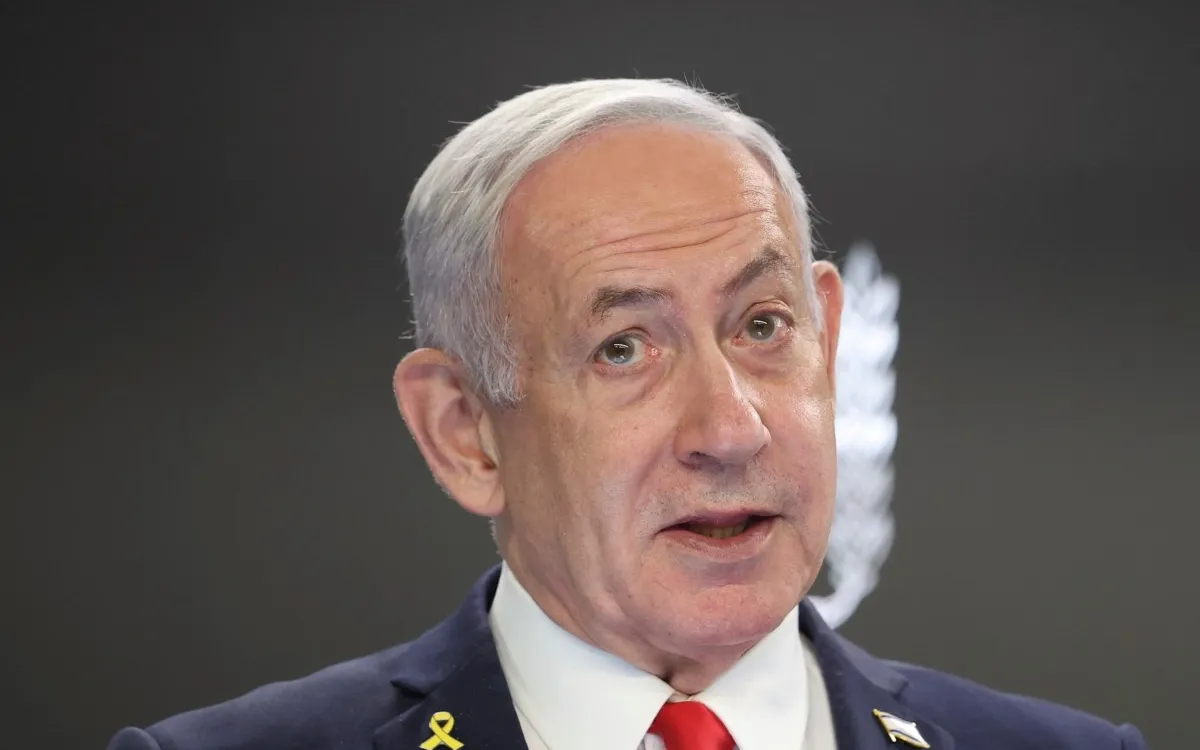
Israeli Prime Minister Benjamin Netanyahu has issued a stark warning, threatening to target Hamas leaders residing in Qatar once again if the Qatari government fails to expel those officials. This provocative statement has elicited a fierce reaction from Doha, highlighting the escalating tensions in the region. On Wednesday, Netanyahu, undeterred by global criticism over Israel's recent military actions, asserted that nations should “applaud” Israel for its ongoing bombing campaign across the Middle East.
Netanyahu's remarks came shortly after an unprecedented Israeli military operation in Qatar, which specifically aimed at senior Hamas leadership in Doha. This attack occurred amidst ongoing discussions about a US-backed ceasefire proposal for Gaza. Netanyahu declared, “I say to Qatar and all nations who harbor terrorists, you either expel them or you bring them to justice — because if you don’t, we will.” This statement illustrates the Israeli government's aggressive stance towards nations perceived to support terrorist organizations.
In response to Netanyahu's inflammatory comments, Qatar's Ministry of Foreign Affairs condemned the Israeli Prime Minister's statements as a “shameful attempt” to justify the military aggression against Qatari territory and as an explicit threat to its sovereignty. The Ministry emphasized that the presence of the Hamas office in Qatar was part of the mediation efforts requested by both the United States and Israel. They criticized Netanyahu's extremist rhetoric, stating, “Such statements are hardly surprising coming from an individual who relies on extremist rhetoric to win elections and is wanted for international justice.”
Recent military actions by Israel have not been limited to Qatar. In just three days, Israeli forces have launched attacks in multiple countries, including Gaza, Lebanon, Yemen, Syria, Tunisia, and Qatar, alongside ongoing raids in the occupied West Bank. On Wednesday alone, Israeli airstrikes resulted in the deaths of 35 individuals in Yemen, further intensifying the humanitarian crisis in the region.
Critics, including Al Jazeera’s Hamdah Salhut, have accused Israel of repeatedly violating international law and interfering in the internal affairs of other nations. Salhut remarked, “Israel again has no problem meddling in the internal affairs of another country or violating international law.” This sentiment reflects a growing concern among international observers regarding Israel’s military conduct under Netanyahu's leadership.
In a separate interview with CNN, Qatari Prime Minister Sheikh Mohammed bin Abdulrahman bin Jassim Al Thani labeled Israel's actions as “state terror.” He expressed his outrage, stating, “I have no words to express how enraged we are from such an action … this is state terror.” Sheikh Mohammed criticized Netanyahu's aggression, asserting that it has “killed any hope” for the remaining hostages in Gaza, emphasizing the dire situation families of captives are facing.
The recent attacks have prompted a swift diplomatic response from regional leaders. United Arab Emirates President Sheikh Mohamed bin Zayed Al Nahyan has met with Qatar’s Emir Sheikh Tamim bin Hamad Al Thani, while leaders from Jordan and Saudi Arabia are expected to converge in Doha. The attack has sent shockwaves across the Gulf, particularly among states that had recently considered normalizing relations with Israel.
Sheikh Mohammed indicated a collective response is being formulated, stating, “There is a response that will happen from the region.” He confirmed plans for an Arab-Islamic summit in Doha to strategize a unified course of action against Israel's military operations. “We are hoping for something meaningful that deters Israel from continuing this bullying,” he asserted, emphasizing the need for solidarity among Arab nations.